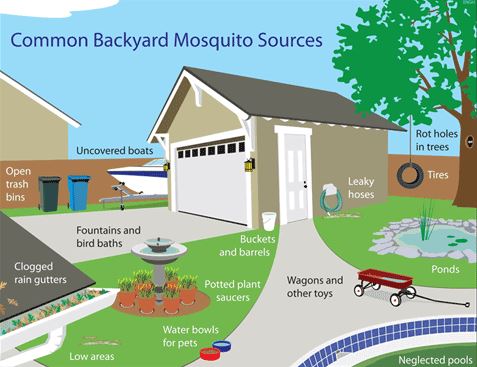
Along with all the rain southern Denton County has seen over the past few weeks comes the threat of health and safety concerns due to stagnant water.
When the rain stops, areas of pooling become excellent breeding grounds for mosquitoes, and more mosquitoes means more bites, and possibly a greater chance of West Nile virus infecting the bitten.
No cases of West Nile have been reported so far this year, said Juan Rodriguez, chief epidemiologist with the Denton County Health Department. Also, no possible mosquito pools have been reported as of Friday.
Here’s what the health department suggests you do to protect yourself from the bugs:
Remember the 4 D’s: drain standing water; stay indoors at dusk and dawn, when mosquitoes are most active; use insect repellent that contains DEET; and dress in pants and long sleeves when outside.
“It is important for residents to take precautions to prevent mosquito bites by minimizing outdoor exposure during peak mosquito activity, dressing appropriately and using DEET or other EPA-approved repellents,” Rodriguez said.
You can find more information about West Nile from the DCHD, and check out some tips for reducing the number of mosquitoes around your home. Rodriguez said a lot of the mosquitoes seen once the rain water dries up are floodwater mosquitoes, and they don’t usually carry West Nile.
If you need help, you can also check with your town for resources to treat standing water on your property.





















